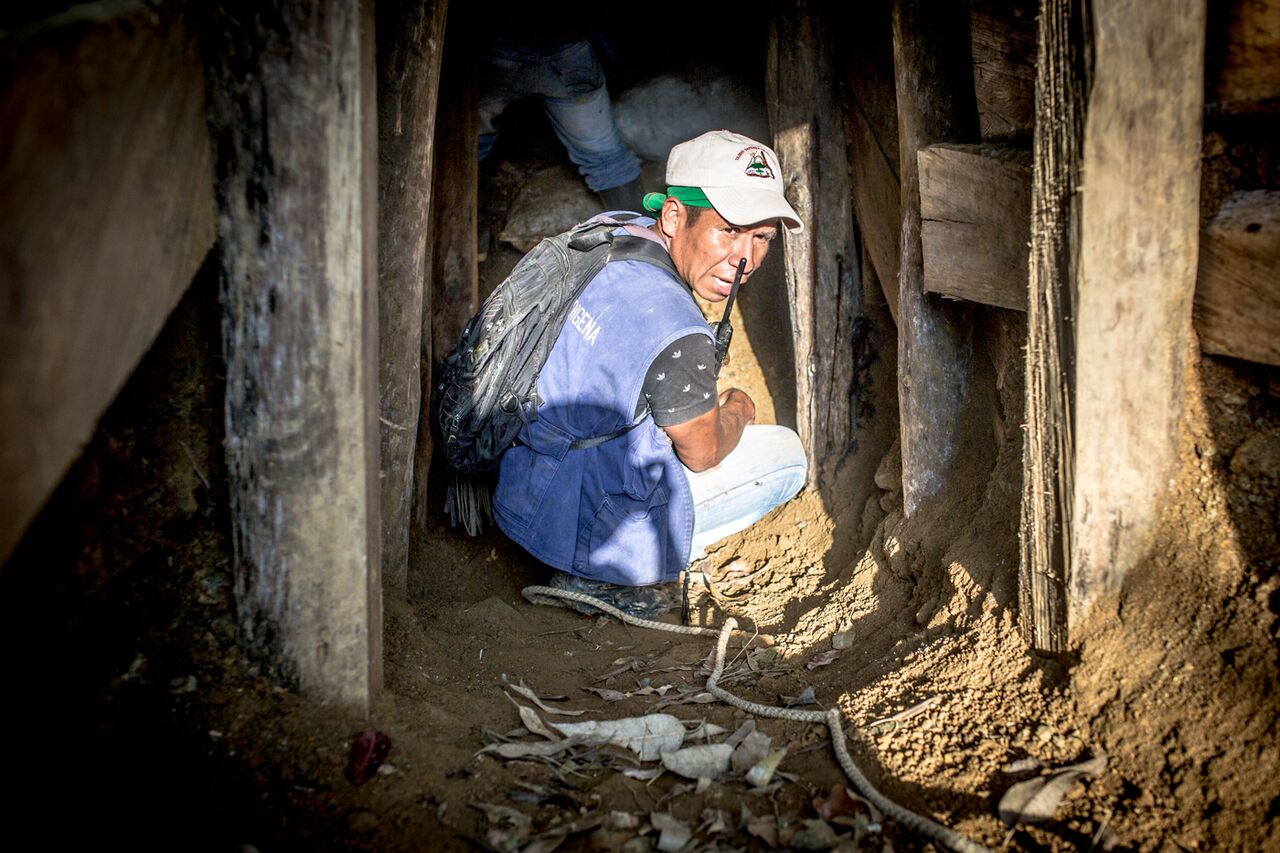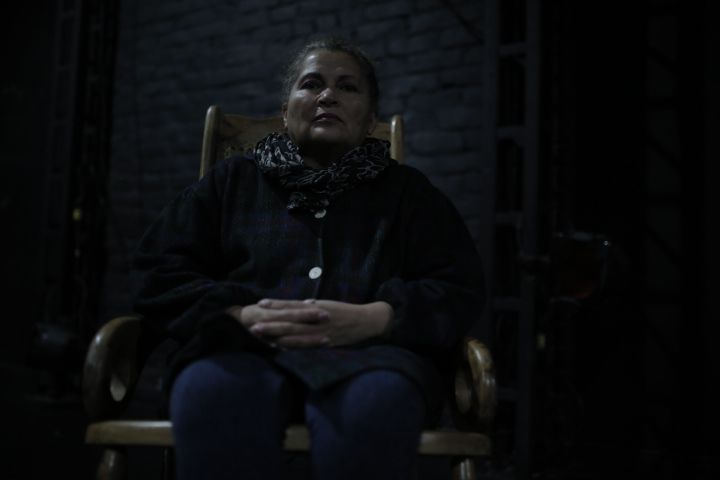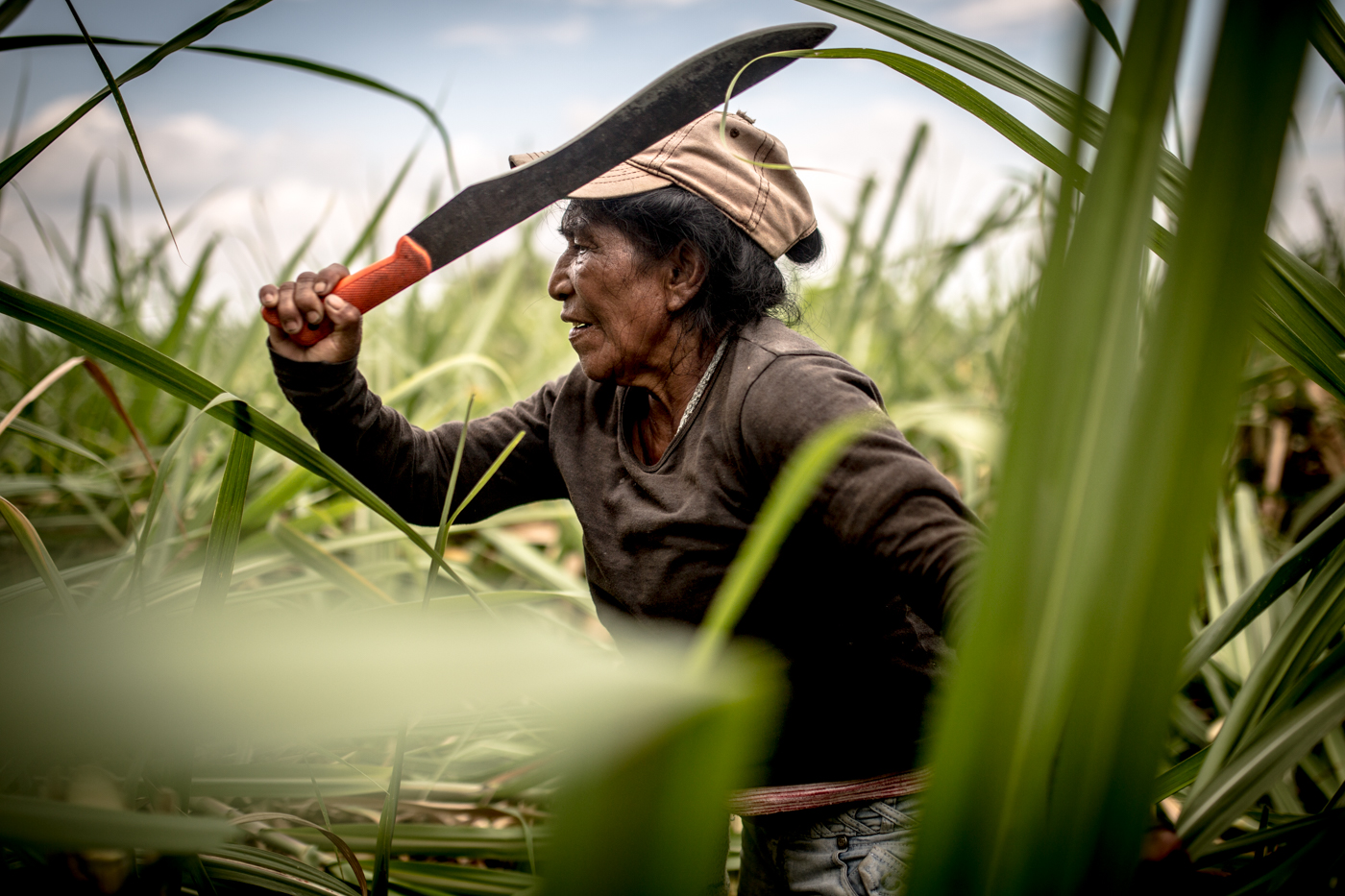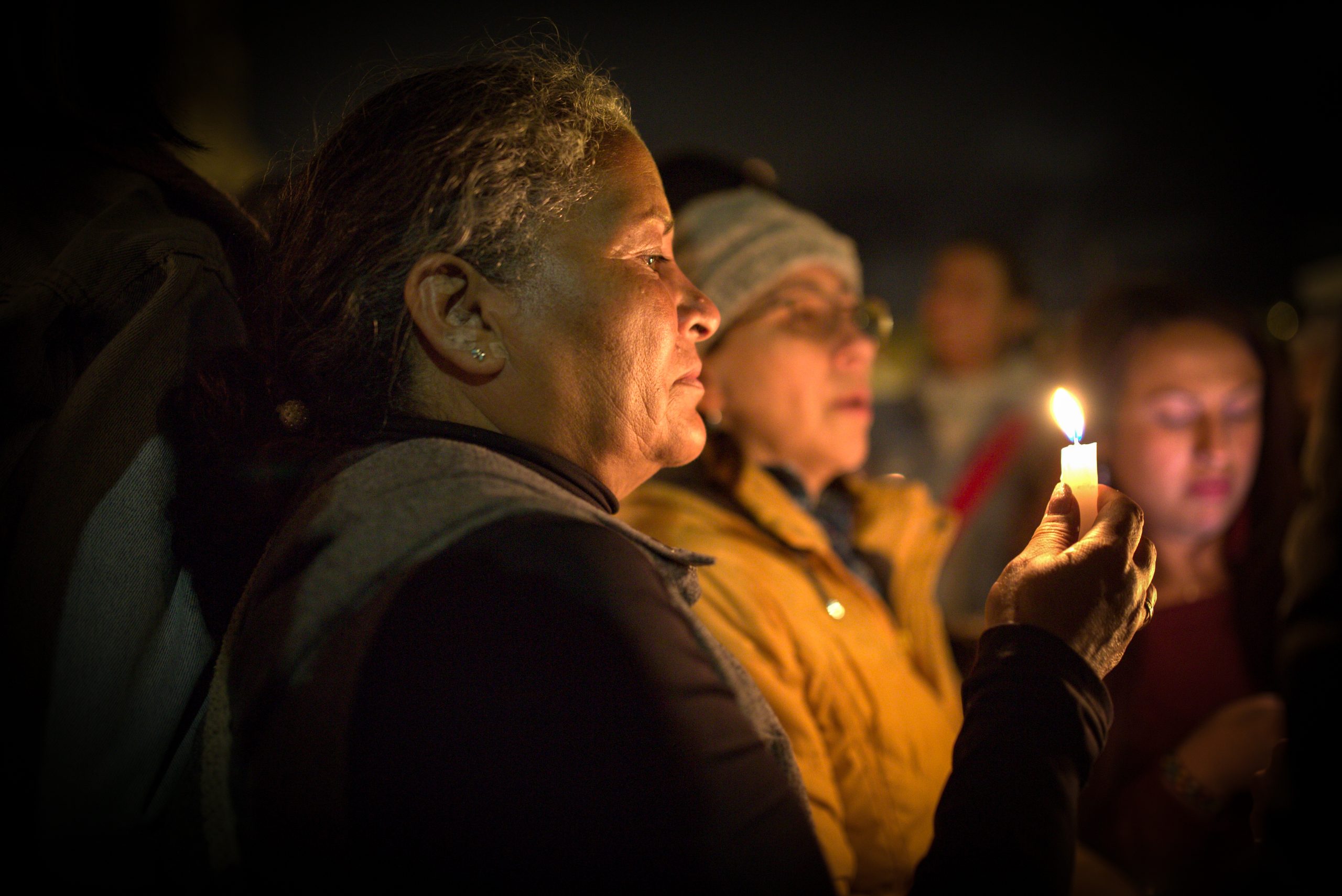A story about the repition of violence and resistance
Synopsis
“Until The Sun Dies“ unfolds its stories over co-incidences of the contrary: life born from death, and death from the pursuit of peace and justice. Through its insight into the struggles of two social leaders in Colombia’s “post-conflict“ era, the film invites us to delve deeply into the stories of those who have defied violence.
Two intimate portrayals, told side-by-side on simultaneous struggles, woven together into a universal story of courage. In one thread, we follow Nobel Peace Prize nominee Luz Marina, a mother seeking justice after the extrajudicial killing of her son. In the other thread, we follow the Nasa indigenous leader Albeiro as he defends his territory against armed groups and multinational companies. The ancestral Indigenous saying “until the sun dies“ mirrors Luz Marina’s and Albeiro’s uncompromising fight for a world where life wins over death, equality over inequality, and the voice of the people over the imposed silence of violence. But their stories also mirror a condition of humanity, where the beauty of life and resistance is seamlessly falling into death and destruction.
“Until The Sun Dies” is a tribute to the thousands and thousands of lives lost in a war that was never their war. A restless meditation on territory and identity, sorrow and community. A completely independent production and first feature-length documentary by human rights activist and director Jonas Brander, this humble film reminds us that the voices of those barely heard in mainstream media are those who will pave the way into another future.
Jonas Brander
Directors Note
This movie has been a constant learning process, a constant critical reflection on how I can be an ally of the people and communities who rise up against violence, injustice and post-colonial politics. It explores how cinema can contribute to a transformative process towards a better future.
As a human rights activist who has spent over three and a half years in Colombia, I approached our protagonists as friends. Together with the Colombian producer Catalina Florez, we recognized the lack of films focusing solely on their perspective. Consequently, we developed this project through extensive conversations with our team members from the communities and the protagonists themselves.
Filmed over a period of 6 years and entirely self-financed, this debut feature film humbly aims to prove that, even without substantial financial support and technical perfection, documentary cinema can achieve what truly moves us: intimacy, relationships, and depth. My artistic approach to attaining this goal embraces radical curiosity and openness, emphasizing the importance of genuine listening, connection, and observation. By allowing the story to shape itself over an extended period, always in close collaboration with its protagonists. This approach and quest for intimacy define the storytelling, while the emotional connection between the viewer and the protagonists shapes the narrative structure. We can only grow together by listening and I hope that this movie can be part of a collective process towards a more reciprocating practice in filmmaking.
HOW DID YOU ENSURE THE CONSENT OF THE PROTAGONISTS DURING THE FILMMAKING PROCESS?
Our commitment to ethical filmmaking is paramount, and the process of obtaining consent is a central aspect of this. This journey unfolded over many years, with a significant emphasis on nurturing and maintaining relationships. Our small team worked closely with Luz Marina and Albeiro, forming bonds of trust and understanding, underlining the fact that consent goes beyond a mere signature – it necessitates a deep level of mutual trust and ongoing dialogue.
In the case of the indigenous communities, we consistently sought permission from their local authorities before initiating any filming. Furthermore, these authorities were informed about the purpose of the shoot, ensuring that the community was aware and supportive of our efforts. Upon the completion of the editing process and before any public exposure, we arranged screenings for the protagonists, Albeiro’s family, and the indigenous authorities. Their permission and valuable insights on the material were sought before we considered showcasing the film to the wider audience. It was our priority to ensure that our portrayal was accurate, respectful, and agreed upon by those whose lives and stories we were privileged to capture.
HOW CAN I SUPPORT THE COMMUNITIES?
If you’re looking to support the communities in their fight for justice, there are several ways you can help. In Colombia’s northern Cauca region, the situation is more challenging than ever. The indigenous organization ACIN, where Albeiro was an active member, along with the regional body CRIC, are in need of solidarity. This can come in various forms, including economic aid or standing alongside them in the streets.
You can find more information and ways to assist on their websites: ACIN or CRIC
Luz Marina continues her fight through theater and artistic work, as well as working within MOVICE, the Movement of Victims Against State Crimes. MOVICE is not only a reliable source of information, but also provides avenues for you to lend your support: MOVICE
For more information on the topics and the context you can also visit ENTRELAZANDO, which accomponied our process and has extensive work around the topcis of indigenous resistance and state crimes in Colombia.
WHERE CAN I SEE THE MOVIE?
While our film is not currently available for online viewing, our primary goal is to ensure these potent narratives are heard, spark meaningful discussions, and inspire change. We’ll keep you updated on the website and our Social Media channels on all the ways you can watch the film:
Film Festivals: The film will begin its journey across various international film festivals soon. Keep an eye on our website for up-to-date schedules, including the dates and locations of these events.
Community Screenings: Beyond the traditional cinema environment, we aim to reach audiences in alternative and communal spaces and work closely with different organizations to circulate the movie in this spaces within the next months. We will also keep those updates on the Website.
Host a Screening: We also encourage and support individuals who wish to host a screening within their communities. If you’re part of an activist group, educational institution, or any other community-centric organization and would like to host a screening, we’re eager to collaborate. Whether it’s a small gathering or a larger event, every initiative helps to amplify the reach and impact of these essential stories.
Local Cinema Screenings: We’re actively seeking out to world wide distributors to bring our film to local cinemas or venues near you and hope that it will circulate in some countries in 2024. This phase will take part some times after the Festival screenings.
While our film is not currently available for online viewing, our primary goal is to ensure these potent narratives are heard, spark meaningful discussions, and inspire change. We’ll keep you updated on all the ways you can watch the film and thank you for your support and interest.
Festivals
JUL/2024
PALERMO
Sole Luna DOC
International Competition
JUL/2024
VICO EQUENSE
SOCIAl WORLD FILM FESTIVAL
OFF Doc Section
APR/2024
BERLIN
Achtung! Berlin
Best Cinematography Documentary
APR/2024
BARCELONA
IMPACTE! Human Rights Film Festival of Catalonia
International Competition
APR/2024
FORT COLLINS
ACT Human Rights Film Festival
Official Selection
APR/2024
DHAKA
Liberation Docfest Bangladesh
International Competition
MAR/2024
MÁLAGA
Festival de Málaga
Biznaga Best Directing & Special Mention Best Movie
MAR/2024
SANTIAGO DE CUBA
Festival Internacional de Santiago Álvarez
Official Selection
JAN/2024
WÜRZBURG
Film Wochenende
Winner Best Documentary
DEC/2023
NEW YORK
New York Human Rights Film Festival
International Competition
NOV/2023
SANTA MONICA
Ethos Film Awards
Official Selection
NOV/2023
CALI
FICCALI
Cine sin limites
OCT/2023
BOSTON
CineFest Latino
Official Selection
OCT/2023
LOS ANGELES
Awareness Film Festival
Honorable Mention
OCT/2023
OSNABRÜCK
Filmfest Osnabrück
Vistas Latinas
OCT/2023
BRUSSELS
Festival de Libertés
Salvador Allende Award
SEP/2023
CUENCA
Festival International de Cine de Cuenca
Official Selection
SEP/2023
MILAN
Visioni dal Mondo
International Competition
WIP & Markets
Oct/2022
COLOGNE
European Work in Progress
Gruvi Award
OCT/2022
LEIPZIG
DOK LEIPZIG
DOK Film Market
APR/2023
NYON
Visions du Reel
VdR-Film Market

Albeiro Camayo
Indigenous Leader

Luz Marina Bernal
Leader against state crimes
Learn more on
The protagonists
In the aftermath of her son’s murder in 2008, Luz Marina Bernal united with other mothers from her local community, all victims of the same horrifying crime. Situated in Soacha, a suburb on the outskirts of Bogotá, Colombia’s capital, these mothers established the group “Madres de Soacha.” United, they denounced the state for the deaths of their sons, unveiling a deeply rooted and systematical crime in the process: Young men, enticed by deceptive promises of employment, were led hundreds of miles from their homes. They were then brutally executed by the Colombian military, their deaths masqueraded under the false guise of being fallen guerrilla fighters.
Luz Marina and the other mothers spent years relentlessly condemning these actions, unveiling a horrifying pattern: approximately between 6.000 and 10,000 civilians had met the same brutal fate at the hands of the Colombian military. Their determined resistance caused Luz Marina to become a national leader and symbol of resistance against these state atrocities. Luz Marina evolved into a notable public figure, her life consumed entirely by her struggle for justice. She participated in peace talks in Havana, was nominated for the Nobel Peace Prize in 2016, and ran for Senate under the banner of the “Colombia Humana” movement. Moreover, she brought a lawsuit against ex-president Alvaro Uribe, while continuing to expose the crimes through artistic mediums such as art and theatre.
Albeiro Camayo, an indigenous farmer, led a humble life within his community. The Nasa tribe, to which he belonged, is renowned for one of the strongest resistance movements in all of Latin America. For centuries, they’ve engaged in protecting their territories and reclaiming stolen land, standing defiant against colonial and capitalist intrusions. Born to community leaders, Albeiro dedicated his entire life to defending his communities rights and autonomy. In recent decades, the situation within his territory grew increasingly convoluted due to the influx of armed groups, illegal mining activities, drug trafficking, and massive land monopolies. In accordance with their cosmovision, Albeiro and his community knew that their only option was to actively resist these encroachments and safeguard Mother Earth.
Fueled by this profound connection to their land, Albeiro and his community established an unarmed self-defense unit, the „Guardia Indígena“. Albeiro became one of the most important coordinators of this group. The subsequent years witnessed Albeiro leading large-scale protests against the government, including street blockades, reclaiming land from multinational corporations, and shutting down illegal mining and illicit cultivation in their territory. As a prominent leader, Albeiro increasingly found his life in danger, surviving five assassination attempts in just three years. In the wake of disarmament, new armed groups began to infiltrate Albeiro’s territory, escalating drug trafficking activities. Albeiro demanded these groups vacate the indigenous lands – a struggle that ultimately led to his tragic death in January 2022. His spirit continues to inspire us and resonates in every action of his community as they steadfastly defend their territory.
A brief word on
Who’s in our team
The project is completely self-financed and passion driven, shot over a time period of 7 years. With an extremely small core team of 3 individuals, we were driven by our deep passion and the political necessity to contribute to change, shaping the film into the work it is today. At the same time, we are still overwhelmed by all the support and the assistance provided by the people who supported this project throughout the years and transformed it into the professional cinematic experience it has become. Having companies like K13 Studios Berlin for the 5.1 cinema sound, the editors Laia Prat and Isabel Isabel Otálvaro, or the composer Jonas Meyer, the collective Entrelazando, which helped us with additional material and countless counsels, as well as Tiwa Studios, and Way Films joining us in the post-production phase is a great honor for us.
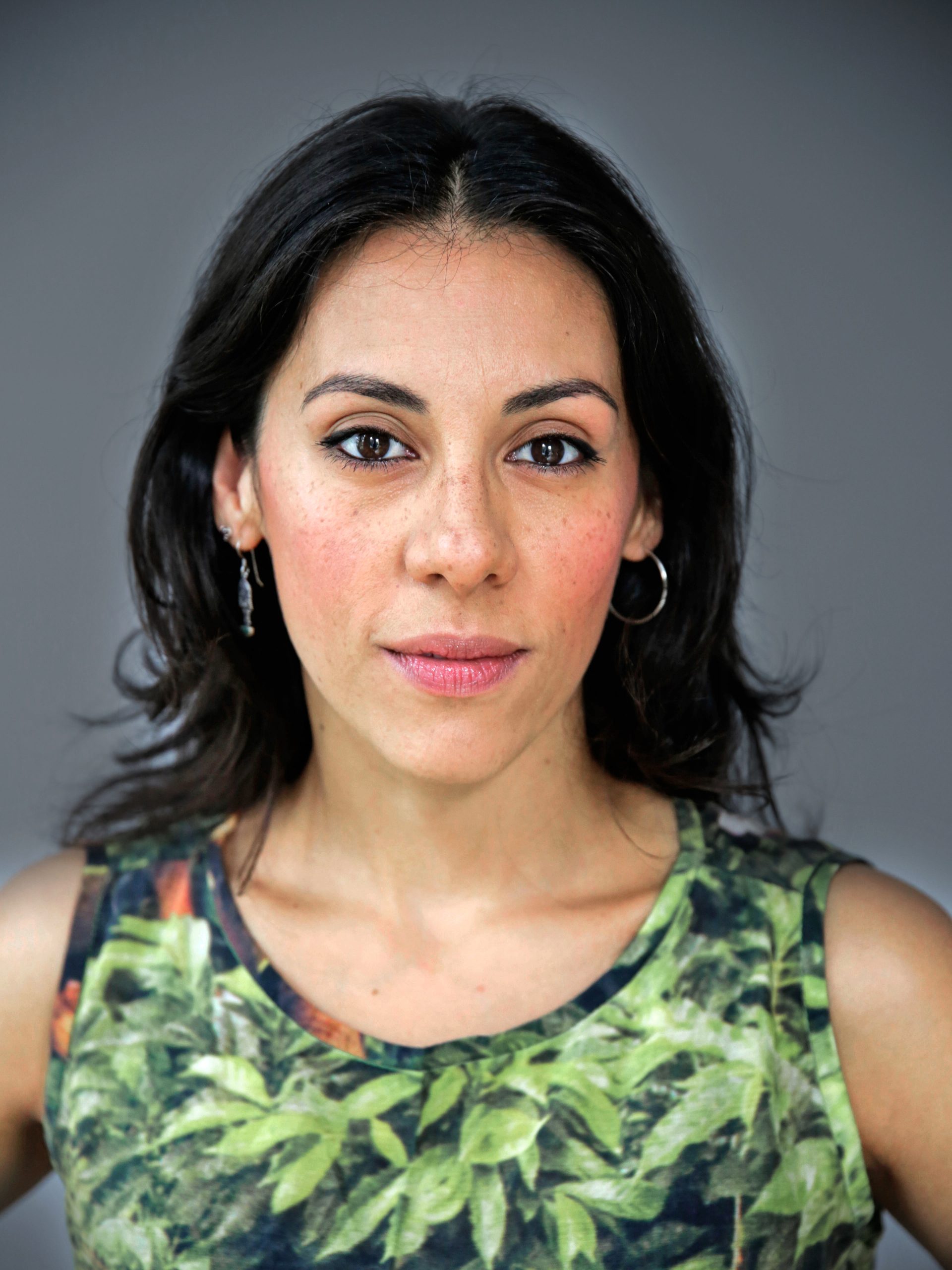
Catalina Florez
Producer
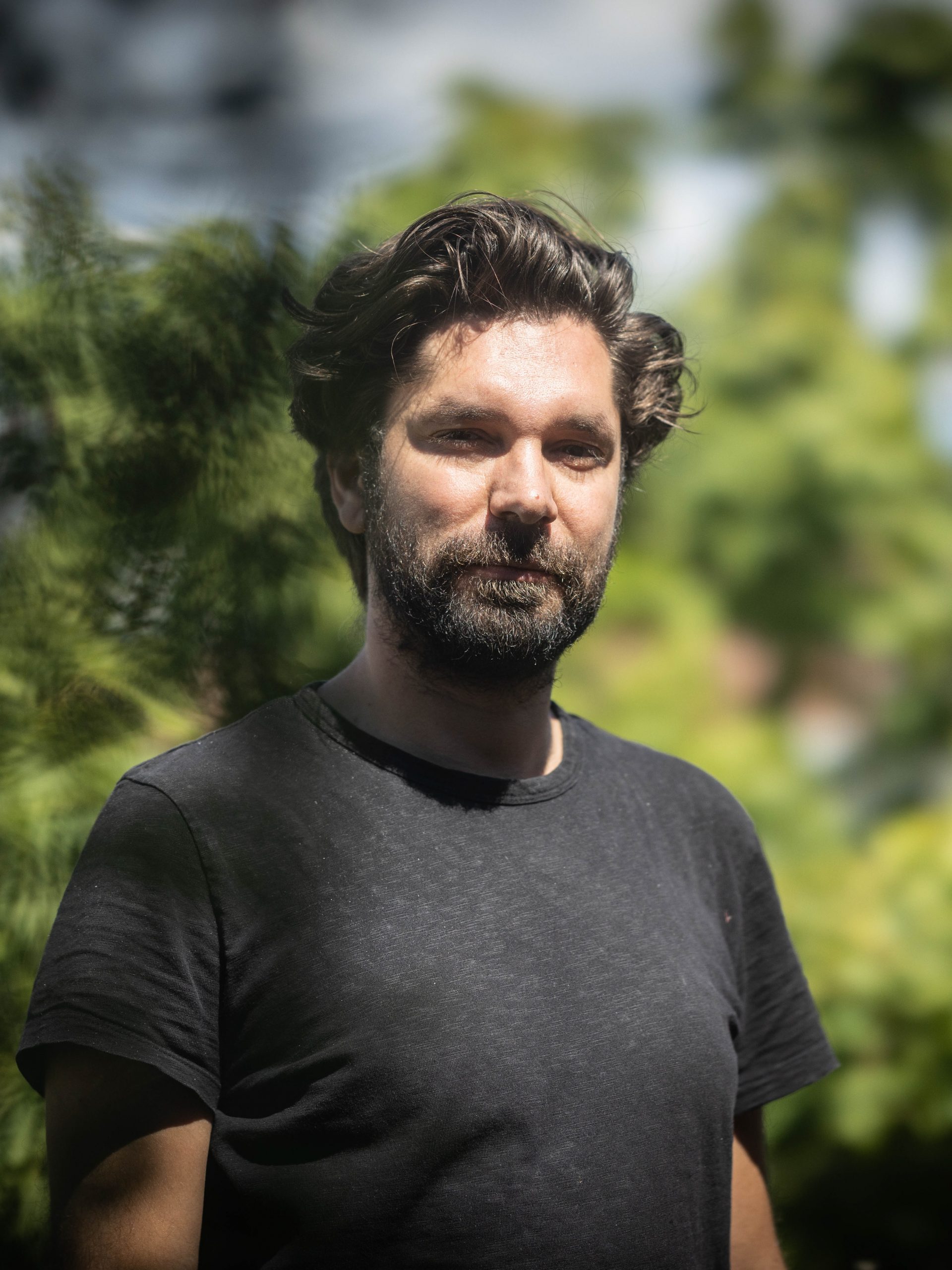
Jonas Brander
Producer, Director, Camera

Leonie Pokutta
Producer
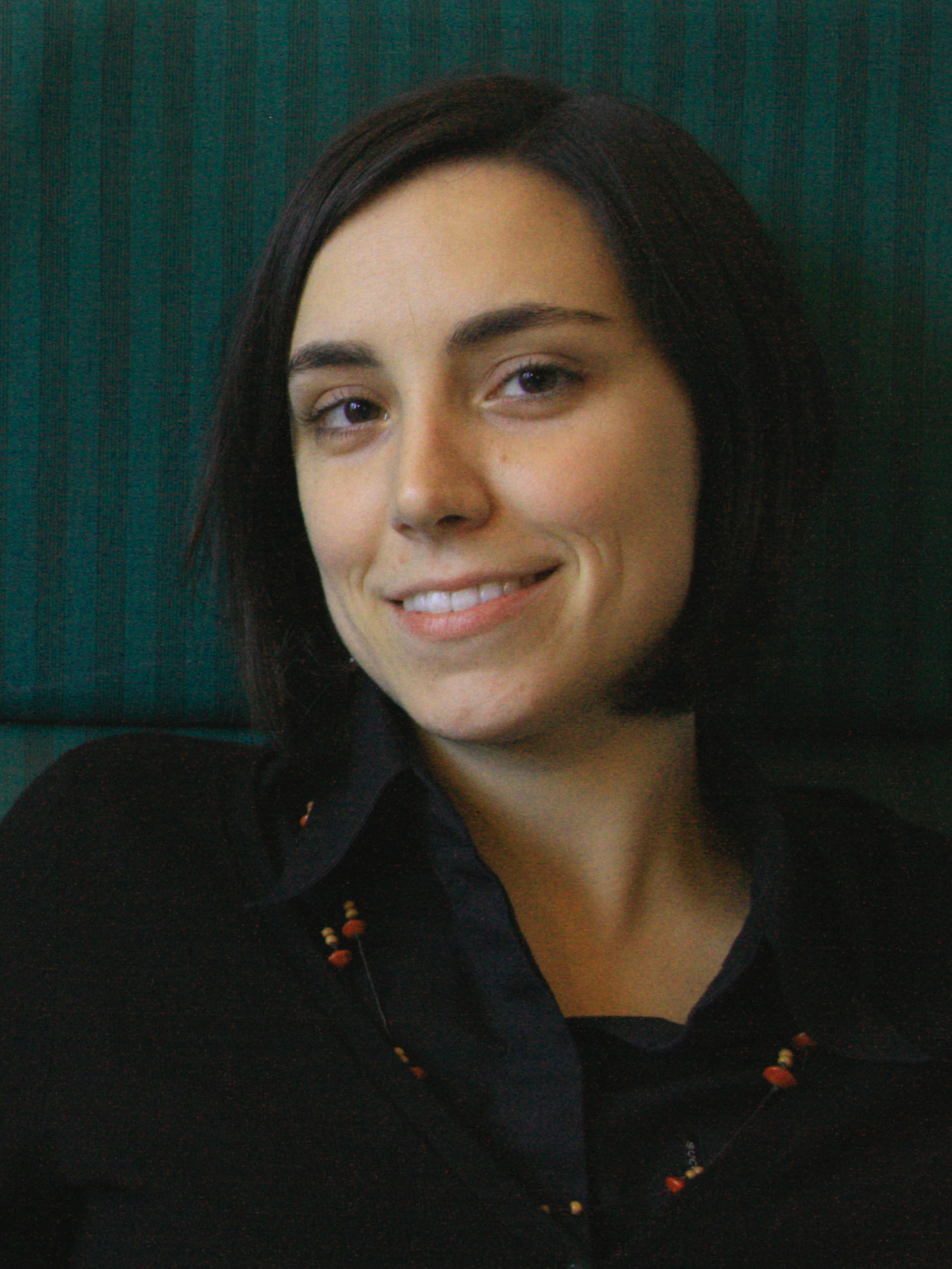
Laia Prat
Dramaturgical Counseling
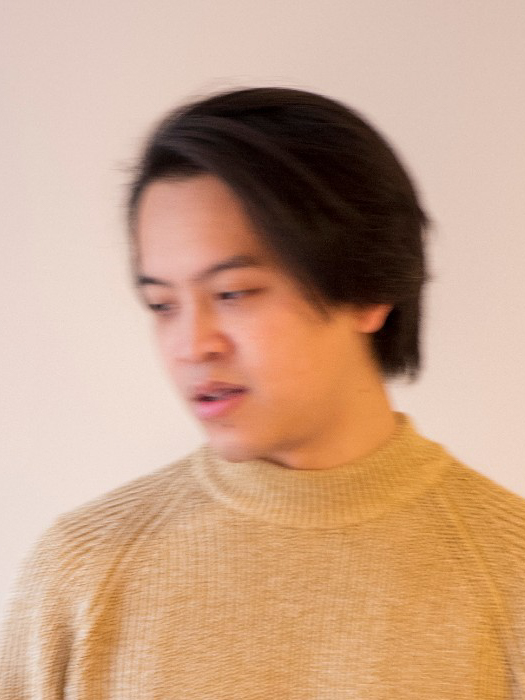
Adrian Lo
Sound Design & Mix
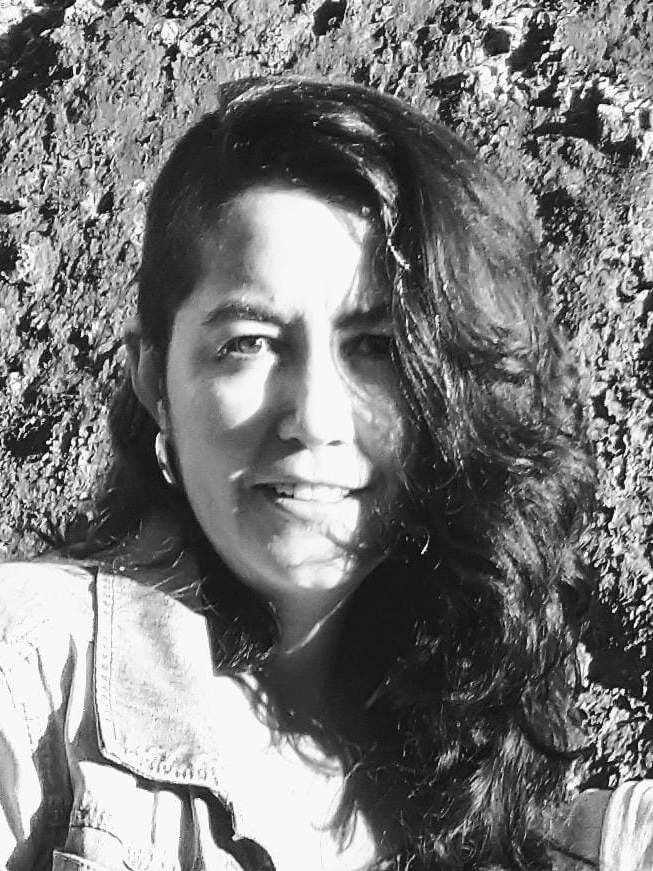
Isabel Otálvaro
Editor
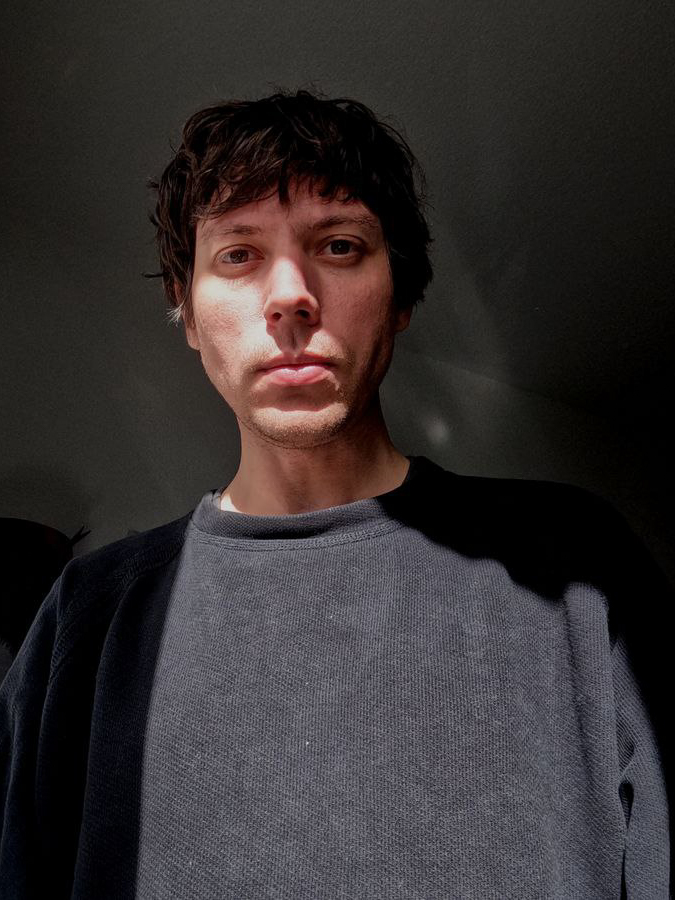
Jonas Meyer
Composer
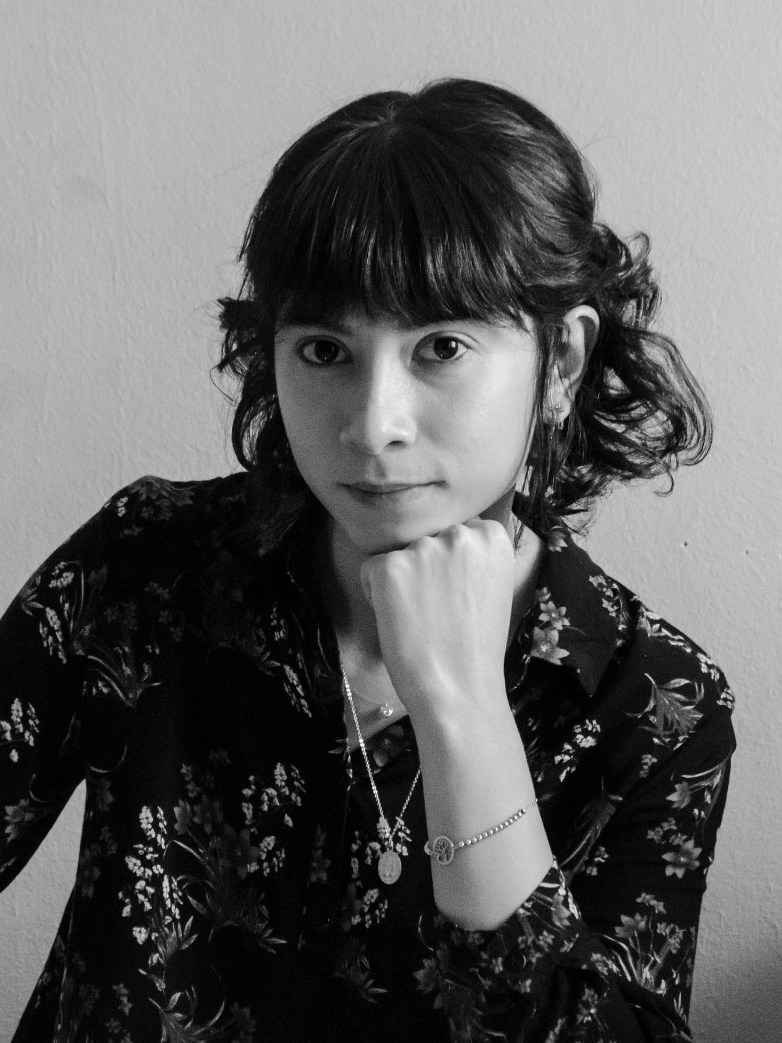
María Acosta
Motion Design
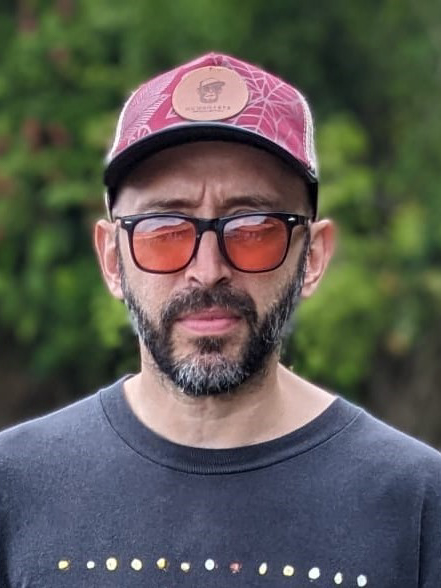
Diego Morales Cifuentes
Graficador
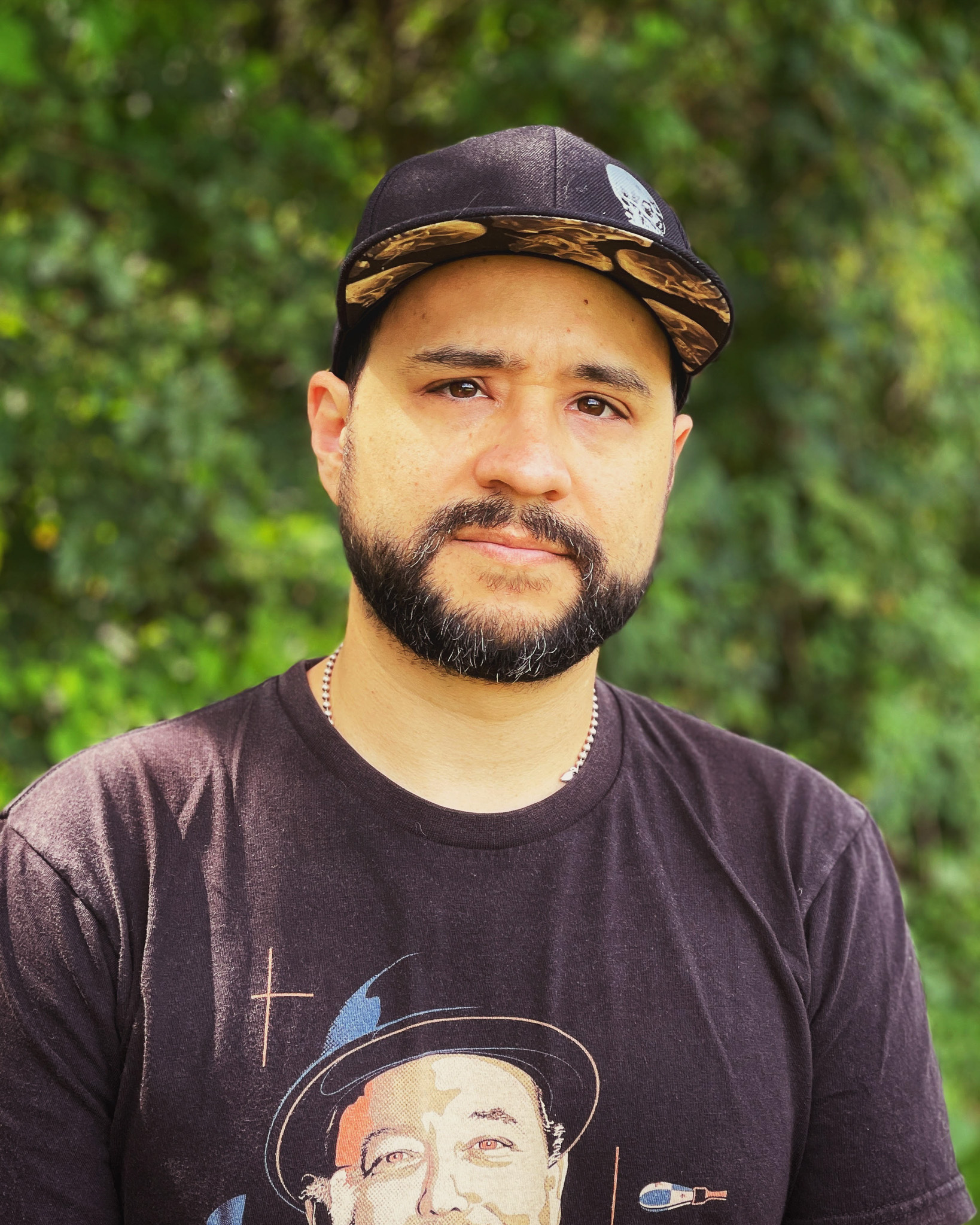
Paulo Arbelaez
Production Assistent

Laura Cadena
Distribución Colombia
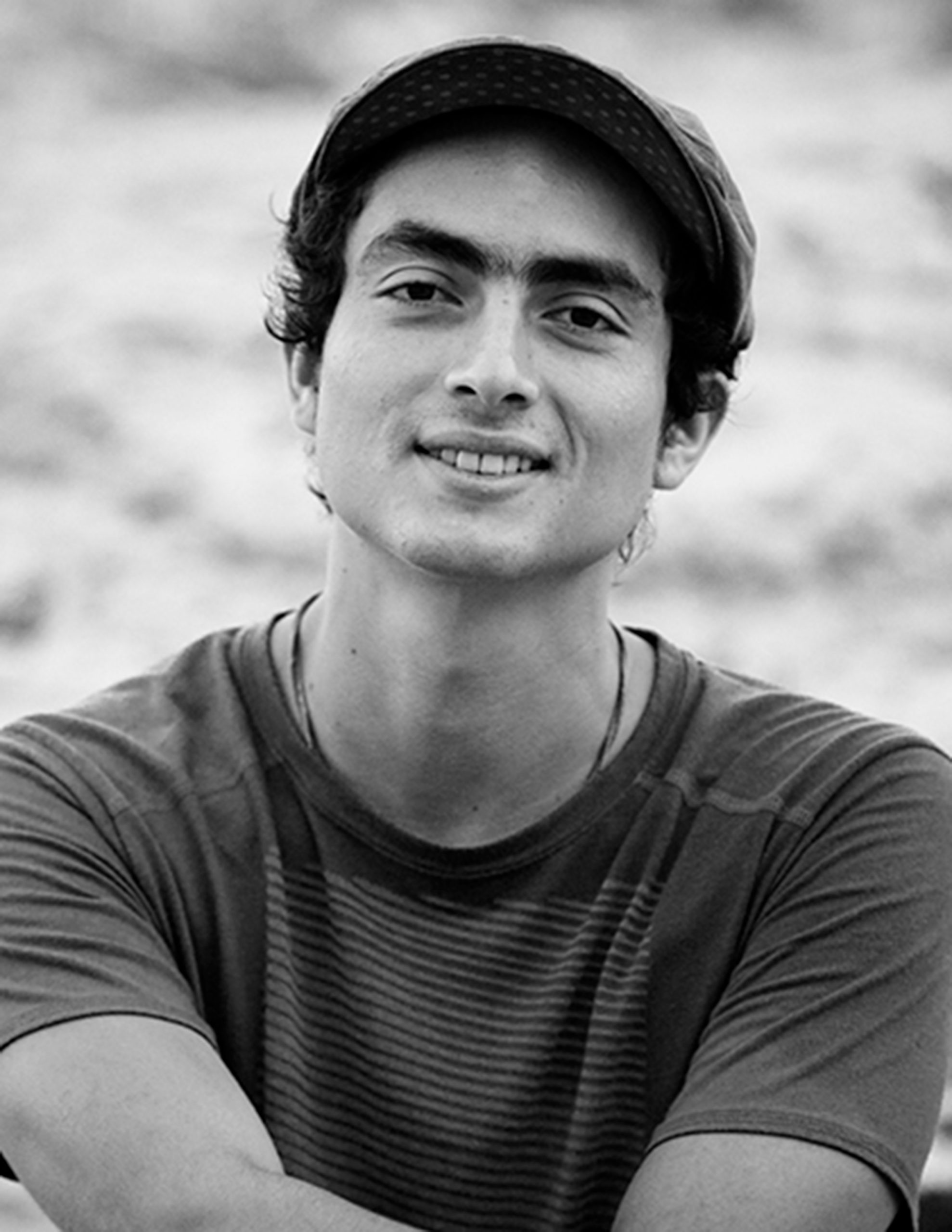
Ariel Arango
Additional Camera
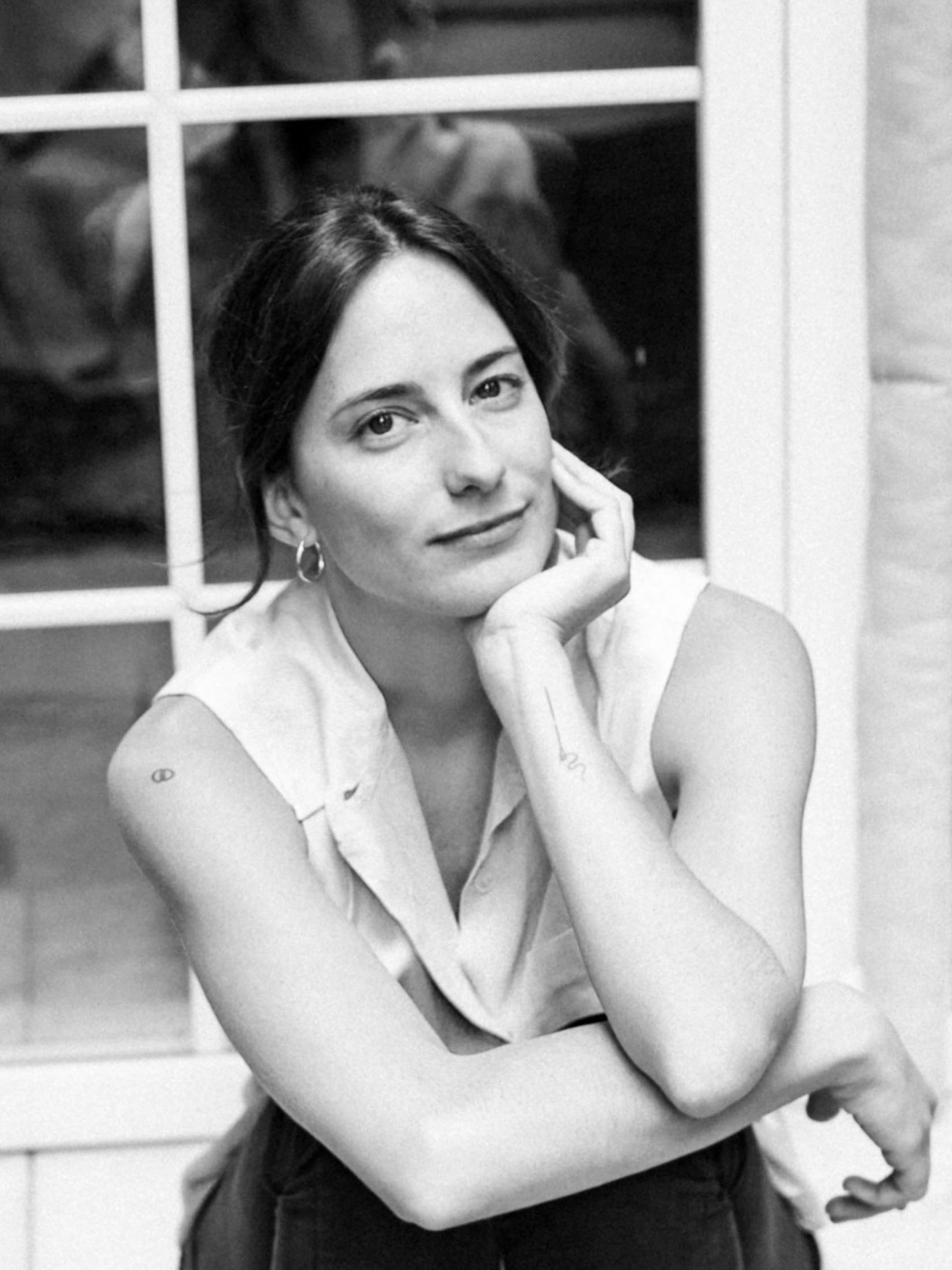
Blanca Bonet
Title Design
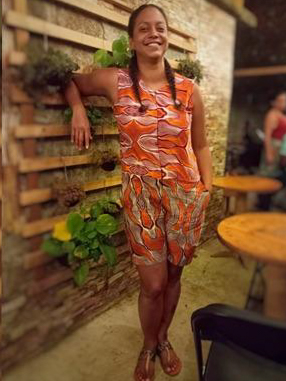
Jennifer Quintero
Assistant of Direction
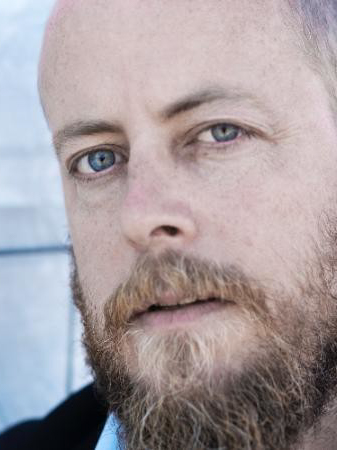
Mathew Way
Subtitles


